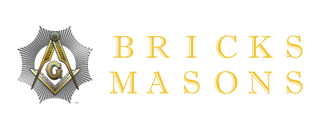The Masonic Budget Committee is responsible for advising the Worshipful Master of the funds available at the Lodge’s disposal. They help the Worshipful master make relevant decisions that will involve Lodge funds.
The Masonic Budget Committee consists of 5 men. They include the Treasurer, the Secretary, the Worshipful Master, and two Master Masons.
The Masonic Budget Committee cannot work unless the Masonic Auditing Committee has carried out the auditing of the Treasurer’s books and confirmed that their findings are okay.
The Masonic Budget Committee cannot create a budget until the books of the Treasurer are audited. If you create a budget before the Treasurer books are audited, you might need to create another budget.
The Masonic Budget Committee prepares a budget of dues income that will be made available for Lodge operations in the forthcoming year.
They meet every year to review the Worshipful Master budget to ensure that all Lodge finances are in order to meet Lodge operations.
Preparation of Lodge Budget
First, the beginning balances of all lodge accounts are confirmed from the Treasurer. If your Lodge uses an accounting software, you can tell the Treasurer to print income details of all the income received the previous year.
If your Lodge accounting is conducted manually, you can request for the following from the Treasurer:
- The number of members that have paid their full annual dues
- The number of members that pay decreased dues
- The number of non-paying or free lifetime members
- The number of members that have been sent payment notifications but are yet to pay
From the figures given above, you can calculate total income received from dues.
For example, if the number of people that pay full dues is 300 and the annual due of your Lodge is $100. You multiply 300 by $100 to get $30,000
Then if half-paying members are 50, you multiply 50 members by $50 to get $2,500.
If non-paying members are 25, you multiply 25 members by $0 to get $0.
So, total dues income received by the Lodge is $30,000 +$2,500 +$0 =$32,500.
Warning: Some Lodge Budget Committees make the mistake of multiplying the total number of members by the total annual dues which will lead to an error. Know what each member is paying and add up accordingly. For the previous example, if you add multiplied 375 members by $100, you would have gotten $37,500 which is wrong. This will lead to a budget deficit, and the incapability of the budget to cater for Lodge expenses.
Income from Fundraisers
Do not include income from fundraisers in your budget as you are not sure of how much you can receive from these fundraisers. The amount is not fixed at all. Fundraiser funds should be placed in a separate column or line. Only dues income should be placed into the budget.
Get the recurring fundraiser income report from the treasurer. This should be easy to get if your lodge uses accounting software. But if not, you can request for the income from various fundraisers. Add up the income from all these fundraisers to get the total recurring fundraiser income.
Analysis of Yearly Income
Then, the yearly income of the Lodge needs to be analyzed to determine if the income from current dues will be greater than the previous year or less than it or equal to it.
Analysis of Recurring Expenses
The next thing to do is to analyze all recurring expenses. Place all these recurring expenses into the budget using the figures gotten from the previous year. Take into consideration all the new expenses that the lodge may incur the next year. For example, if you want to renovate the lodge, the expense of that should be added to the list of recurring expenses.
Yearly income minus recurring expenses = Budget dollars available for the Worshipful Master
So, Income-Expenses= Budget dollars available
These figures will help the Lodge prepare for the upcoming year. The Masonic Budget Committee should report their findings to the Lodge at the next Lodge meeting. It is essential that the Masonic Budget Committee carry out their job after Masonic Auditing Committee has audited the books of the Treasurer.
